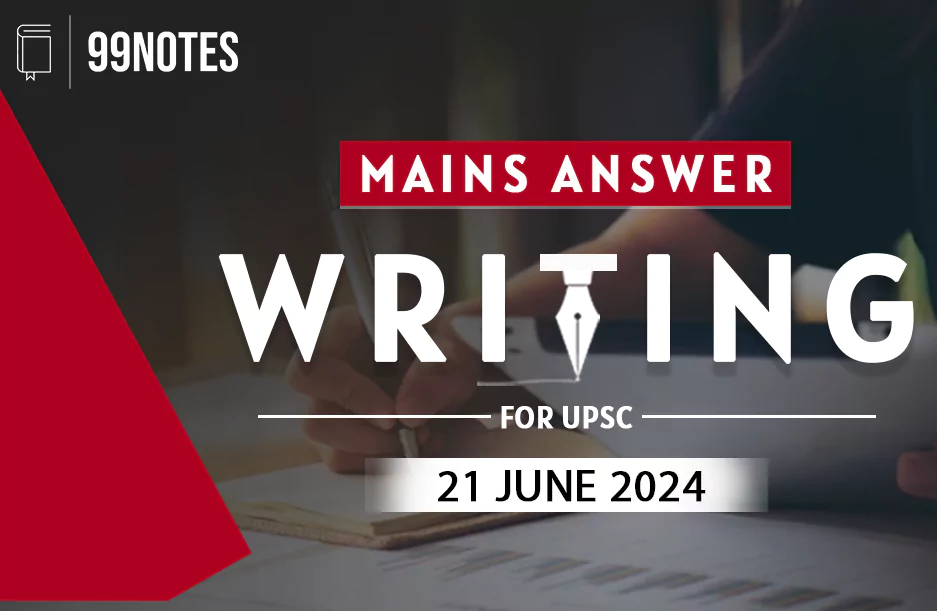21 June 2024 : Daily Answer Writing
Q1) What does the following quote mean to you:
“Justice without force is futile, force without justice is tyrannical.”
ANS
Justice means fair treatment of people and giving them what they deserve. Effectiveness of justice often requires use of force, creating a contested territory for ethics.
Justice without force would be futile because of the following reasons:
1. Utilitarianism: The greatest interest of the greatest number of people is served through enforcement of justice.
E.g., detention under UAPA.
2. As per cosmopolitan world view, the world is seen as one community and threat to principles such as human rights justify the use of force. In the words of Martin Luther King Junior –
“Injustice anywhere is a threat to justice everywhere”.
E.g., NATO’s military interventions in Libya to overthrow oppressive regime.
3. Kant’s duty principle requires the governments to do their duty regarding protecting law and order, security of the state which justifies the use of force.
4. As per categorical imperative, inaction including not using force cannot be universalized,
e.g., against existential threats.
5. Common good justifies use of force for ensuring justice.
E.g., impounding of vehicles for violation of traffic rules.
6. Virtue ethics: The threat to dry out the sea by Shree Rama on his way to Lanka is justified in Ramacharitmanas as “Bhaya bin hoye na preet” (fear is necessary to incentivize affinity).
At the same time, force without justice would be tyrannical due to following reasons:
1. Erosion of democratic values: Force without recourse to justice results in authoritarianism. It will result in majoritarianism and violation of human rights.
E.g., detention of more than a million Uighur Muslims in China.
2. Principles of natural justice: The right to be heard, fair trial and lack of bias are necessary to prevent force from becoming tyrannical.
E.g., requirement to inform an arrested person the grounds of her arrest (article 22).
3. Consequentialism: Force without just can cause alienation of people and give rise to issues such as naxalism, insurgency, separatism etc. Action to contain such consequences requires further use of force
e.g., AFSPA.
4. Social regression: Use of force for enforcing norms leads to social regression and hypocrisy.
E.g., incidents of wife-beating, gendered restrictions in families etc.
5. Virtue Ethics: Gandhian virtue of non-violence argues for use of truth-force to convince even the tyrant (satyagraha). Use of forceful methods would lead to immoral outcomes such as Stalin’s tyranny in USSR
6. Public vs private ethics: Use of corporal punishment at school or homes is considered unethical due to greater realization of individual’s basic rights even under guardianship of parents and teachers
Justice and force remain in constant interaction. Ethical governance and virtuous society should minimize the use of force while maximizing justice.



